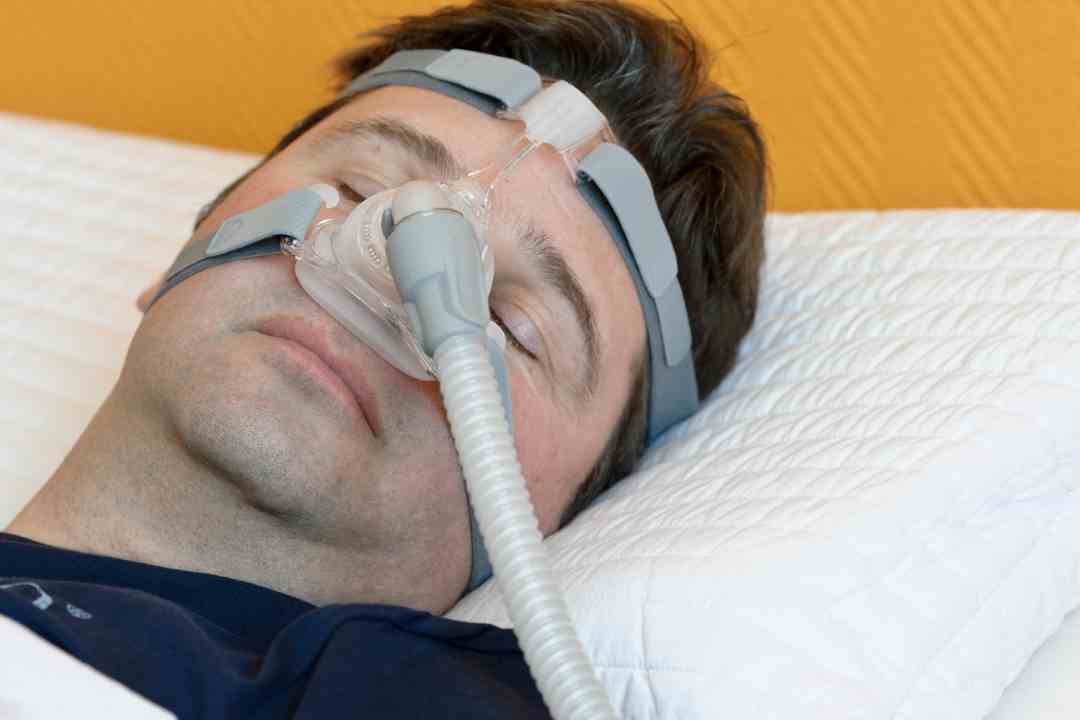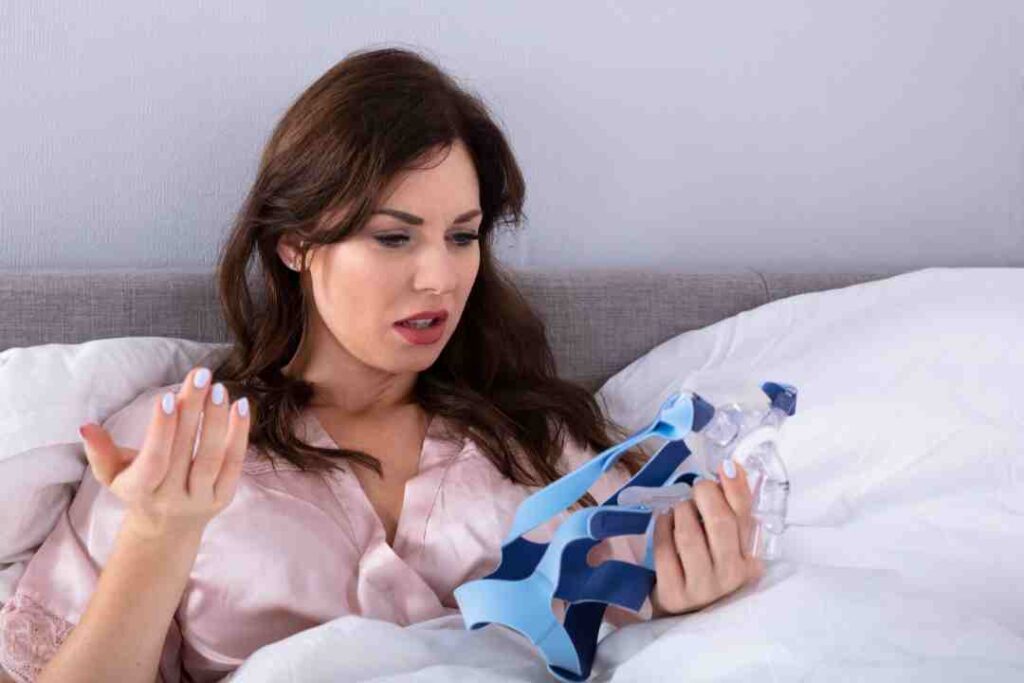Addressing Common CPAP Mask Discomfort and How to Alleviate It

Are you experiencing discomfort while using your CPAP mask? Don’t worry, you’re not alone. Many individuals who use continuous positive airway pressure (CPAP) therapy for sleep apnea treatment may experience various discomforts associated with their best CPAP masks. However, there are steps you can take to alleviate these discomforts and make your best CPAP therapy more comfortable and effective. In this article, we will explore the importance of CPAP therapy, the common discomforts associated with CPAP masks, tips to alleviate the best CPAP mask discomfort, and when to consult a healthcare provider.
Understanding CPAP Therapy and Its Importance
Sleep apnea is a serious sleep disorder characterized by repetitive pauses in breathing during sleep. These pauses, known as apneas, can last for several seconds to a minute and can occur multiple times throughout the night. As a result, the brain and the rest of the body may not receive enough oxygen, leading to a range of health issues.
CPAP therapy, which stands for continuous positive airway pressure, is considered the gold standard treatment for sleep apnea. It involves wearing a mask over your nose and/or mouth, which is connected to a machine that delivers a continuous flow of pressurized air, keeping your airways open during sleep. The purpose of CPAP therapy is to prevent the collapse of your airway and ensure that you receive sufficient oxygen throughout the night.
When you first start CPAP therapy, it may take some time to adjust to wearing the mask and getting used to the sensation of pressurized air. However, with regular use, most people find that CPAP therapy greatly improves their quality of sleep and overall well-being.
What is CPAP Therapy?
CPAP therapy works by gently pushing air into your airway, acting as a splint to keep it open. This constant pressure prevents apneas and hypopneas, which are the events that occur when your airway becomes blocked or partially blocked during sleep. By maintaining an open airway, CPAP therapy helps to ensure that you can breathe freely and without interruption throughout the night.

The pressure settings for CPAP therapy are determined by a sleep specialist or respiratory therapist, who will carefully assess your individual needs. The pressure is typically adjusted based on factors such as your body mass index (BMI), the severity of your sleep apnea, and your overall health. You can also read about Reliable eye clinics for best laser eye surgery in Australia by visiting https://pandemicinfluenza.org/reliable-eye-clinics-for-best-laser-eye-surgery-in-australia/
The Role of CPAP in Sleep Apnea Treatment
Effective sleep apnea treatment is essential for your overall health and well-being. Untreated sleep apnea can lead to numerous complications, including high blood pressure, heart disease, stroke, and daytime drowsiness. In fact, studies have shown that individuals with untreated sleep apnea have a higher risk of developing cardiovascular problems.
CPAP therapy not only improves the quality of your sleep but also reduces the risk of these complications, allowing you to wake up feeling refreshed and energized. By ensuring that your airway remains open and providing a continuous flow of pressurized air, CPAP therapy helps to normalize your breathing patterns and maintain oxygen levels, promoting better overall health.
In addition to its physical benefits, CPAP therapy can also have a positive impact on your mental well-being. Many people with sleep apnea experience symptoms such as irritability, difficulty concentrating, and mood swings. By improving the quality of your sleep, CPAP therapy can alleviate these symptoms and enhance your overall mood and cognitive function.
It is important to note that CPAP therapy is not a cure for sleep apnea. However, when used consistently and correctly, it can effectively manage the symptoms and improve your quality of life. If you suspect that you may have sleep apnea, it is important to consult with a healthcare professional who can provide a proper diagnosis and guide you through the appropriate treatment options.
Common Discomforts Associated with CPAP Masks
While CPAP therapy is highly effective, some individuals may experience discomfort related to the use of CPAP masks. Understanding these discomforts can help you address them appropriately and enhance your overall CPAP experience.
CPAP masks play a crucial role in delivering continuous positive airway pressure (CPAP) to individuals with sleep apnea. However, like any medical device, they can sometimes cause certain discomforts that need to be addressed for optimal comfort and adherence to therapy.
Skin Irritation and Pressure Sores
Skin irritation and pressure sores are common complaints among CPAP mask users. The constant pressure exerted by the mask against your skin may cause redness, rashes, or even sores. This can be particularly troublesome for individuals with sensitive skin.
To alleviate this issue, it is important to ensure a proper mask fit. A well-fitted mask should distribute the pressure evenly across the face, minimizing the risk of skin irritation. Additionally, using mask liners or pads can provide an extra layer of cushioning between the mask and your skin, reducing the chances of developing pressure sores.
Dryness and Congestion
CPAP therapy can sometimes lead to dryness in the nose and throat, causing discomfort and congestion. This is especially common in individuals who breathe through their mouths during sleep.
To combat dryness and congestion, incorporating a heated humidifier as part of your CPAP setup can make a significant difference. A heated humidifier adds moisture to the air delivered by the CPAP machine, helping to alleviate dryness and promote better breathing. In addition, using a chinstrap or a full-face mask can help prevent mouth breathing and reduce dryness in the throat.
Claustrophobia and Anxiety
Some individuals may experience feelings of claustrophobia or anxiety when wearing a CPAP mask. This can be due to the feeling of confinement or the fear of being unable to breathe freely.
If you find yourself struggling with claustrophobia or anxiety while using a CPAP mask, there are several strategies you can try. Gradual acclimatization is key – start by wearing the mask for short periods during the day, gradually increasing the duration until you can comfortably wear it throughout the night. Relaxation techniques, such as deep breathing exercises or guided meditation, can also help alleviate anxiety and promote a sense of calmness while wearing the mask. Seeking support from a healthcare provider who specializes in sleep medicine can provide valuable guidance and assistance in managing these concerns.
By addressing these common discomforts associated with CPAP masks, you can enhance your overall CPAP experience and ensure the effectiveness of your therapy. Remember, finding the right mask fit, incorporating a heated humidifier, and managing any claustrophobia or anxiety can make a significant difference in your comfort and adherence to CPAP therapy. Click here to read about Breathing Difficulty During Sleep.
Tips to Alleviate CPAP Mask Discomfort
If you are experiencing discomfort while using your CPAP mask, here are some tips that may help:
Choosing the Right Mask
The first step in alleviating CPAP mask discomfort is to ensure you have the right mask for your individual needs. There are several types of CPAP masks to choose from, including nasal masks, nasal pillows, and full-face masks. Nasal masks are designed to fit over your nose, providing a secure seal and delivering the pressurized air directly into your nasal passages. Nasal pillows, on the other hand, are small, cushioned inserts that sit at the entrance of your nostrils, allowing for a more open and lightweight feel. Full-face masks cover both your nose and mouth, ensuring a constant flow of air even if you breathe through your mouth during sleep.
Consulting with a healthcare provider or trying different mask options can help you find the most comfortable fit. They can assess your breathing patterns and recommend the most suitable mask for you. It’s important to remember that everyone’s face shape and sleeping habits are unique, so what works for one person may not work for another.
Proper Cleaning and Maintenance
Regular cleaning and maintenance of your CPAP mask is crucial for preventing discomforts. Over time, oils from your skin, sweat, and bacteria can build up on the mask, causing skin irritation and reducing the effectiveness of the seal. To clean your mask, disassemble it according to the manufacturer’s instructions and wash the components with mild soap and warm water. Make sure to rinse thoroughly and allow the mask to air dry before reassembling it.
In addition to regular cleaning, it’s important to replace worn-out parts as needed. The mask cushion, headgear, and tubing can wear out over time, leading to discomfort and leaks. Check these components regularly for signs of wear and tear, such as cracks, tears, or stretched-out elastic. If you notice any damage, it’s time to replace them to maintain optimal comfort and performance.

Maintaining the hygiene of your mask is also essential. Avoid using harsh chemicals or cleaning agents that could irritate your skin or damage the mask. Instead, opt for gentle, fragrance-free cleansers that are specifically designed for CPAP equipment. Additionally, make sure to regularly change and clean the filters in your CPAP machine to ensure clean and fresh air delivery.
Using Mask Comfort Products
There are various mask comfort products available that can enhance your CPAP experience. For example, mask liners provide an extra layer of cushioning between your skin and the mask, minimizing skin irritation and pressure marks. These liners are typically made of soft, hypoallergenic materials that are gentle on the skin.
Another option is mask pads, which are gel or foam cushions that adhere to the mask frame. These pads can help distribute pressure more evenly across your face, reducing the risk of discomfort and skin breakdown. They also help absorb moisture, keeping your skin dry and comfortable throughout the night.
Nasal cushions are another comfort product that can improve your overall CPAP experience. These cushions are designed to fit over the nasal pillows or inside the nasal mask, providing an extra layer of cushioning and reducing nasal irritation. They come in different sizes and materials, allowing you to find the perfect fit for your nose and personal comfort preferences.
Exploring these options and experimenting with different comfort products can greatly improve your overall comfort while using CPAP therapy. Remember, finding the right combination of mask and comfort accessories may take some trial and error, but the effort is well worth it for a good night’s sleep.
When to Consult a Healthcare Provider
Although some discomforts associated with CPAP masks can be addressed through self-care measures, there are instances where it is advisable to seek guidance from a healthcare provider. Some situations where you should consult a healthcare provider include:
Persistent Discomfort Despite Adjustments
If you have tried various strategies to alleviate discomfort but continue to experience persistent issues, consulting with a healthcare provider can help identify the underlying cause and find alternative solutions.
Severe Skin Reactions or Infections
If you develop severe skin reactions, such as blisters, open sores, or infections, it is important to seek medical attention promptly. A healthcare provider can evaluate the issue and provide appropriate treatment to prevent further complications.
Difficulty in Breathing or Swallowing
If you experience difficulty in breathing or swallowing while using your CPAP mask, it is essential to consult a healthcare provider immediately. These symptoms may indicate a mask fit issue or other underlying concerns that require medical evaluation.
In conclusion, while CPAP therapy is highly effective for sleep apnea treatment, it is not uncommon to experience some discomforts associated with CPAP masks. By understanding the common discomforts, following the tips provided, and seeking appropriate guidance when necessary, you can address these issues and make your CPAP therapy more comfortable and enjoyable. Remember, a good night’s sleep is essential for your overall health and well-being, so don’t let mask discomfort hinder your journey to better sleep.
